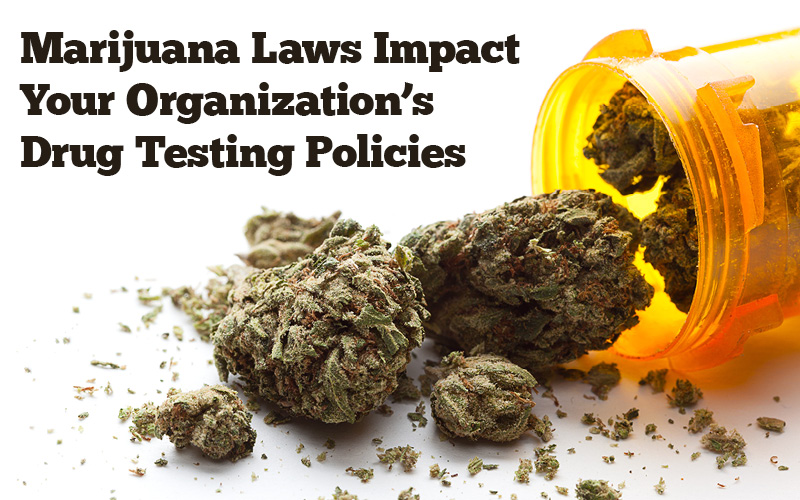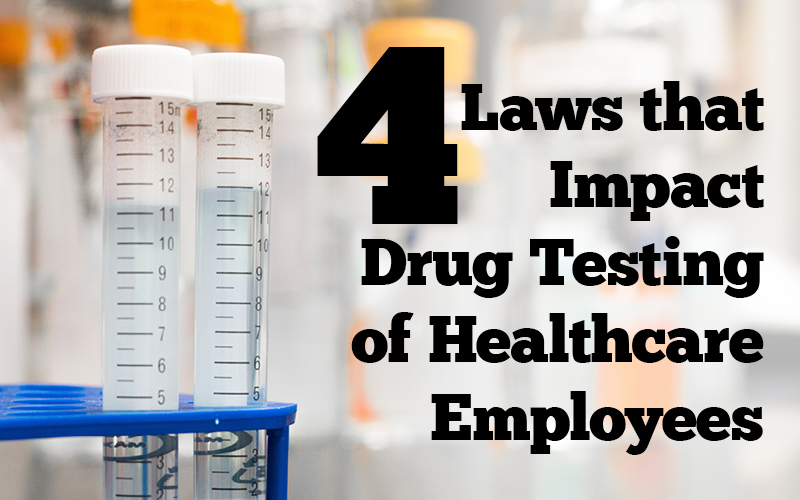Marijuana Laws Impact Your Organization’s Drug Testing Policies
The growing trend in marijuana laws have presented a unique challenge for employers— the conflict between federal and state laws leave most employers in a daze. Given that some states place restrictions on marijuana drug testing, employers need a clear understanding to avoid the legal ramifications that can be caused by outdated drug testing policies.
Marijuana use is illegal under the federal U.S. Controlled Substances Act of 1970 (CSA), which classifies marijuana as a Schedule I prohibited substance. As a Schedule I substance, marijuana is considered to be a substance that: 1) possess a high potential for abuse; 2) has no currently accepted medical use in the U.S.; and 3) lacks accepted safety for use under medical supervision.” Meanwhile, in direct contradiction to the federal law, a majority of states and the District of Columbia have legalized medical and/or recreational use of marijuana. Of these states, Alaska, Colorado, Oregon, Washington, California, Maine, Massachusetts, Nevada and the District of Columbia have legalized marijuana for recreational use. While many states do not require employers to accommodate marijuana users, there are a handful of states that do provide employee protections. These states pose a challenge for employers and their workplace policies. Employers operating in these states, including Arkansas, Arizona, Connecticut, Delaware, Illinois, Maine, Minnesota, Nevada, New York, Pennsylvania and Rhode Island, must be particularly vigilant to ensure internal employment policies comport with the law.
As it relates to drug testing, a few states that legalize marijuana place restrictions on employer drug testing. States such as Arizona, Delaware and Minnesota prohibit employers from taking negative adverse action against an individual for off-duty marijuana use (for instance discipline or termination). If an employer wants to take adverse employment action, it must be able to show that the individual was impaired by marijuana during work hours. So how is this accomplished? Employers cannot simply rely on a failed drug test as evidence that an employee was under the influence of marijuana. Common methods of drug testing, such as a urinalysis, only indicate recent marijuana use but cannot differentiate between off-duty use versus an impairment at the time of testing. This is because these methods test for the presence of tetrahydrocannabinol (THC) metabolites. But THC remains in a person’s system for days and even weeks after marijuana consumption. This means that a drug test is only a starting point- employers must take additional due diligence steps, such as documenting evidence of actual on-the-job impairment and determining whether the individual is a registered marijuana cardholder. Depending on the state, an exception may exist for safety-sensitive positions (such as operating machinery or motor vehicles) but for the most part healthcare positions would not fall into this exception.
In conclusion, marijuana laws vary widely from state to state. Employers must regularly review this developing area and revise their drug testing policies to comport with their respective state law(s). Understanding an employer’s legal rights and responsibilities is paramount to mitigating risk when dealing with these workplace issues, along with up to date policies and careful documentation.
This article was originally published in the May/June 2017 PAHCOM Journal.






